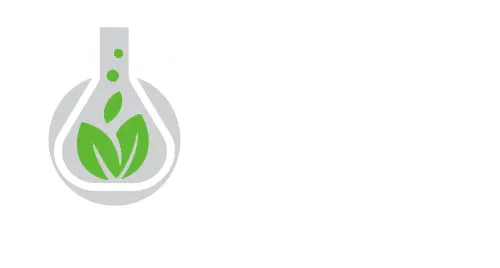Private-Label Supplements vs Custom Formulation: Which Is Right for You?
The health and wellness industry is experiencing robust expansion driven by increased consumer interest, and launching your own supplement brand is a promising way to tap into a high-demand market. Before you dive into the supplement market, there’s a key decision to make: Should you choose private-label supplements or invest in custom supplement formulation?
Both paths offer unique advantages and potential drawbacks. The right choice depends on your business goals, budget, timeline, and vision for your brand. This blog will detail the pros, cons, and key considerations of private label vs. custom supplement formulation to help you decide which is best for you.
What Are Private-Label Supplements?
Private labeling involves putting your brand name and packaging on an existing supplement formulation that was developed by a manufacturer. You don’t develop the supplement from scratch—instead, you choose from a catalog of pre-formulated products that are already legally compliant, tested, and market-ready.
Benefits of Private-Label Supplements
- Faster Time to Market: The research and development (R&D) is already complete, which means you can launch your product in a few weeks rather than months.
- Lower Cost: You avoid the high upfront investment in formulation development and testing, making private labeling ideal for startups or smaller businesses.
- Low Order Minimums: Some manufacturers offer minimums as low as 36 bottles, which makes it easier to test the market with less risk.
- Regulatory Compliance: Reputable private-label manufacturers ensure that all products meet U.S. Food and Drug Administration (FDA) and Federal Trade Commission (FTC) standards.
Drawbacks of Private-Label Supplements
- Limited Customization: You’re starting with a previously formulated supplement, so ingredient substitutes or serving changes are not an option.
- Less Brand Differentiation: The widespread availability of identical products among various brands hinders efforts to create a unique and recognizable brand image.
- Lower Margins: The collective development costs, while initially advantageous, can result in lower profit margins due to the pressure to offer competitive pricing.
What Is Custom Supplement Formulation?
Custom formulation refers to developing a supplement from the ground up, tailored to your specific brand, audience, and performance goals. You work directly with a manufacturer to select ingredients, serving sizes, delivery methods, flavors, and packaging. This process gives you total control over your product.
Benefits of Custom Supplement Formulation
- Unique Product: You create a supplement no one else has, which helps establish brand authority and customer loyalty.
- Full Ingredient Control: You can choose premium ingredients, offer science-backed servings, and align with your brand’s values—like vegan, gluten-free, or allergen-free.
- Higher Profit Potential: Exclusive products allow for premium pricing and greater profit margins.
- Brand Identity: Custom supplements can become your signature offerings and set you apart from generic alternatives.
Drawbacks of Custom Formulation
- Higher Costs: Expect significant investment in R&D, formulation testing, label claim substantiation, and regulatory compliance.
- Longer Lead Times: Development can take anywhere from 12–16 weeks for the first batch.
- Higher Order Minimums: Many manufacturers require minimums in the range of 1,000 units or more per SKU, depending on product type.
- Greater Risk: If the product doesn’t perform well in the market, you bear the full financial burden.
Private-Label vs. Custom Formulation: How To Choose?
The decision between a private-label supplement and custom formulation should align with your current resources and long-term vision.
A private-label supplement is preferable if you:
- Are new to the supplement industry and want to test the market with less financial risk
- Have limited capital for product development
- Need a faster time-to-market to seize a trend or opportunity
- Want to build brand recognition before committing to a unique formula
- Are experimenting with multiple products and want to see what sells best
Consider custom formulation if you:
- Have an established customer base that is looking for a unique solution
- Want to differentiate your brand with exclusive product offerings
- Are targeting a specific niche market with custom health needs
- Have an adequate budget for development, testing, and larger order volumes
- Are focused on long-term growth and brand authority
When considering which option will best accommodate your brand goals, it’s also important to understand the differences in production time and costs.
Comparing Timelines and Costs
| Feature | Private Label | Custom Formulation |
| Development Time | 4–6 weeks | 12–16 weeks (or longer for complex formulas) |
| Upfront Cost | Low | High (R&D, testing, stability studies) |
| Order Minimums | As low as 36 units | Typically, 1,000+ units (higher for liquids, gels) |
| Testing Requirements | Pre-completed by manufacturer | Developer is responsible for ingredient & label testing |
| Customization Options | Limited to branding/labeling | Developer has full control over formula, form, and flavor |
How To Choose a Reliable Supplement Manufacturer
Whether you decide on a private-label or custom supplement, your manufacturing partner plays a crucial role in your success.
Look for a provider that offers:
- Current Good Manufacturing Practice (cGMP)-Certified facilities, as this ensures compliance with FDA standards
- In-house testing to help guarantee purity, potency, and stability
- Turnkey supplement manufacturing, including design, branding, compliance, and fulfillment
- Dedicated account management for streamlined communication and project support
- Transparent minimum order quantities (MOQs) and pricing that provide clear expectations for cost and scalability
During the conceptualization stage, if your custom formulation idea is very similar to an existing private-label product, a good manufacturer will advise you to start with private labeling instead—saving you time and money. For example, consider a scenario where you’re a wellness coach launching a brand that specializes in supporting hormone balance for women over 40. If you want to enter the market quickly, a manufacturer may recommend starting with a private-label blend of adaptogens and B vitamins.
Over time, once your consumer base grows, you could develop a custom supplement that includes proprietary herbal blends or new delivery methods like flavored liquids or chewables. Working with experienced supplement formulators who can recommend highly qualified manufacturers can also help streamline this process.
Overall, whether you’re just getting started or scaling an established brand, creating your own supplement line can be a powerful business move. Choose a private label for speed and simplicity, or custom supplement formulation for uniqueness and full creative control. Either way, when you work with a trusted formulator and manufacturer that offers full-service support and regulatory expertise, your brand is set up for long-term success.
Need help deciding which option is right for you?
Reach out to a supplement formulating expert who can walk you through private-label vs. custom options based on your budget, timeline, and target market.
Learn more here.






